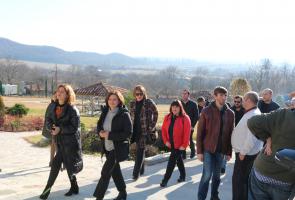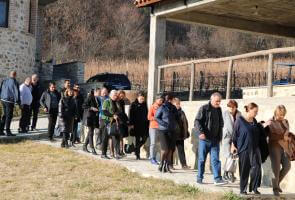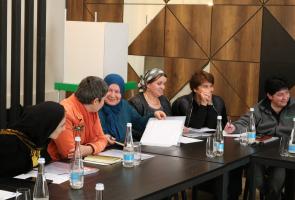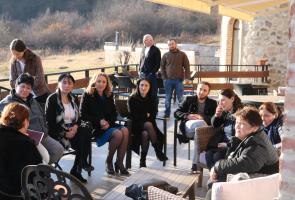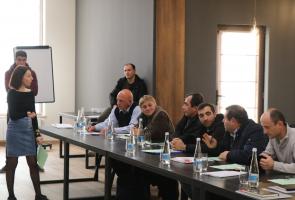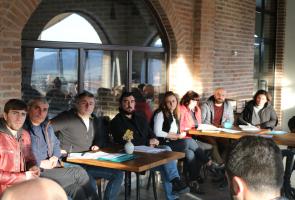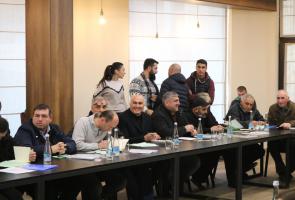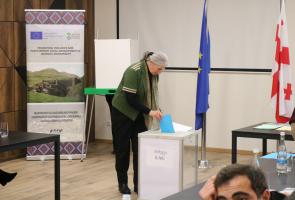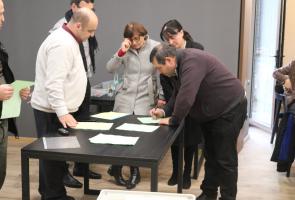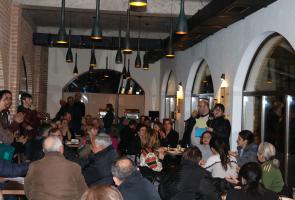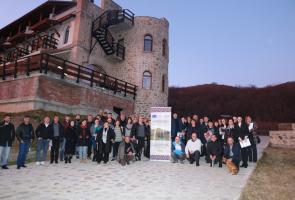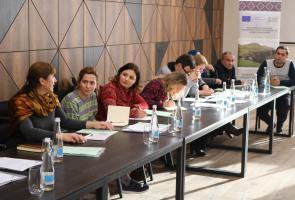News
Akhmeta LAG formed and elects Executive Board
18/12/19
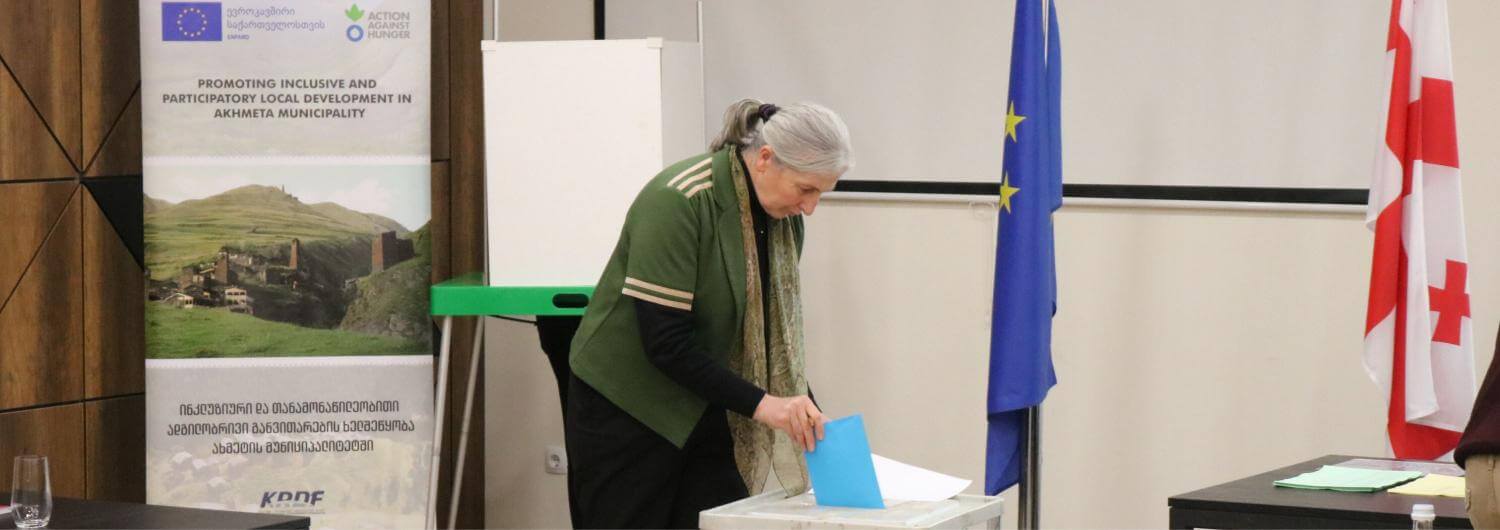
There was an excellent turnout of 67 local citizens for the first meeting of the Akhmeta Local Action Group (LAG) which took place in the picturesque surroundings of Babeneuris Marani. Initial training sessions had been held for prospective LAG members at the end of November which had introduced them to the concept and principles of the LEADER-CLLD (Community-Led Local Development) approach and how to adapt this methodology to their unique context in Akhmeta. Allowing a few weeks for the dust to settle from these gatherings, people had the chance to give serious consideration to what they had learned and to realistically assess whether they would be able to contribute to their community with their time, energy and expertise as a LAG member.
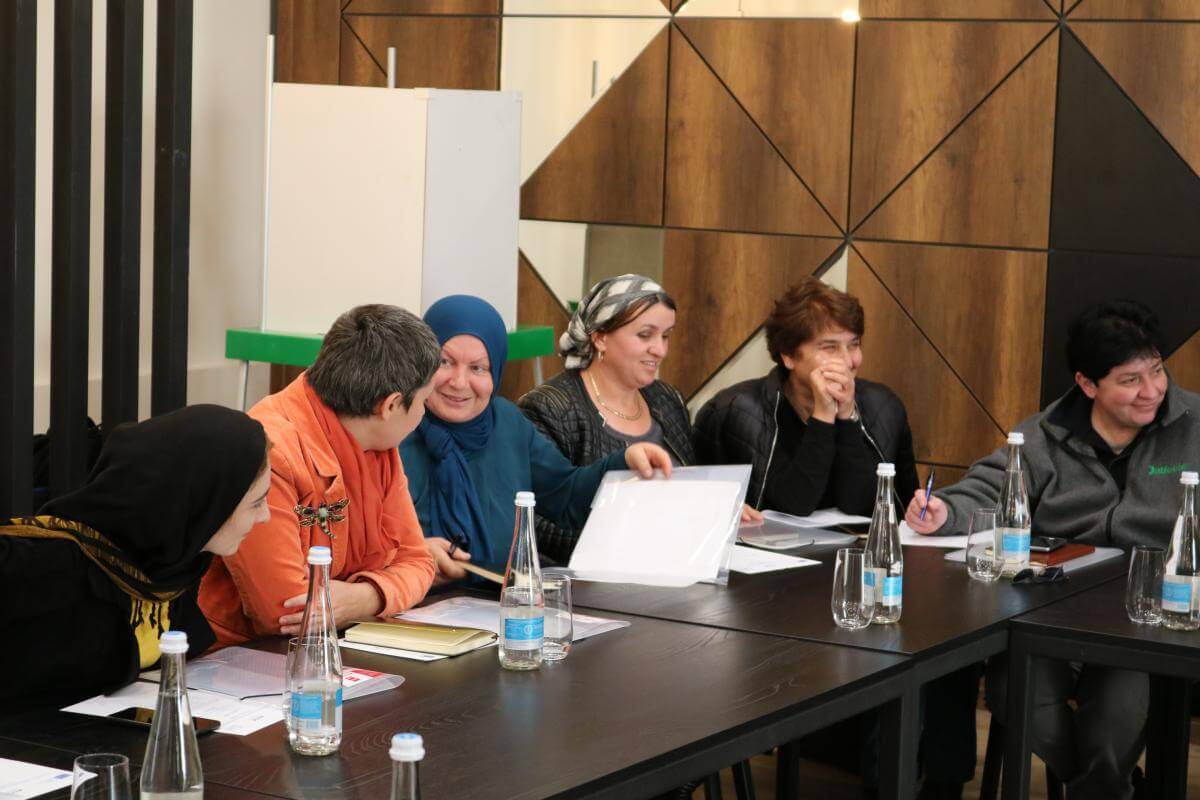
For those that had made the commitment, the LAG meeting at Babeneuris Marani was the first time that the whole group had come together. Over the past 12 months, within the framework of the EU-funded ENPARD project, “Promoting inclusive and participatory local development in Akhmeta Municipality”, most of those present had met and spent time with each other, whether at meetings, study tours and other interactions organised by the project. But this was the first official meeting of the LAG and the opportunity was taken to elect LAG Executive Board members who would serve as representatives of their locality and their working sector: be it private enterprise, public service or civil society.
An introductory speech was given by Richard Maxfield, Technical Co-ordinator and Giorgi Santuryan, Program Manager of Action Against Hunger South Caucasus, the lead implementing agency of the project. This was followed by an open discussion with questions and answers between attendees and representatives of Action Against Hunger and the local partner, Kakheti Regional Development Foundation (KRDF). A key issue of discussion was the level of direct involvement of Action Against Hunger and KRDF and the amount of autonomy of the LAG when it comes to project proposals, funding, monitoring and evaluation. It was explained that the LAG would be the key decision-making body and would receive guidance from the project partners. Other more specific issues related to LAG membership, the voting process for electing board members, the level of representation from each of the three sectors (public, private, civil society), and the number of representatives relative to population.
Attendees from each sector – public, private and civil society – then gathered in their respective groups to learn more about people’s expectations and motivation and to allow potential board members to put themselves forward for the upcoming election. Following these in-depth discussions, the LAG members cast their ballots for their respective sectors. Once completed, members left to allow those officiating over the electoral process to count the votes. After a long day of discussion, debate and procedure, people had a chance to relax, eat dinner and chat in a more informal setting. Following the dinner, the announcement was made of those that have been elected to the Executive Board.
Having just found out of her election as a board member representing the private sector, local entrepreneur Ana Imedashvili, 34, provided her impressions and said that “private industry and agricultural support is very important and I now have the chance to share my experience in business and also to help educate and create better conditions to boost the region…”. Speaking about the work of the board in general, Ana is realistic but hopeful – “We need free and open discussion and to allow everyone to say what they think. It is important to be open so we can work closely as we will be making important decisions and I will do my best to do the best job to bring positive change”. In the new year, the LAG Executive Board will come together to draft the LAG statute and together, with the LAG General Assembly, start work on the Local Development Strategy.
The project is funded by the European Union as part of the third cycle of the ENPARD programme and is implemented by Action Against Hunger, Kakheti Regional Development Foundation and Tusheti Development Fund.
The European Union is supporting agriculture and rural development in Georgia through its ENPARD programme. The support is grounded in the best European practices in the field and involves improving livelihoods of rural communities through creating economic opportunities and promoting local public-partnerships. Implemented since 2013, the main goal of ENPARD is the reduce rural poverty in Georgia. For more information, please visit: www.enpard.ge
